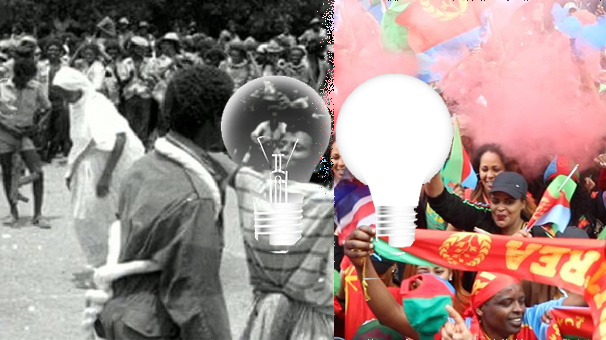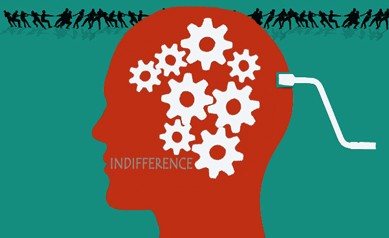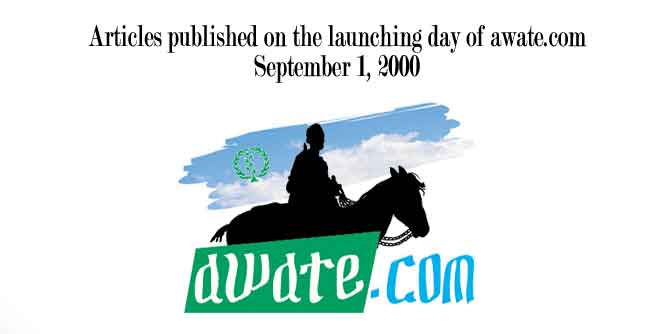The Unspoken Debt: Sacrifice, Power, and Consent in Eritrea

Author’s Note: This short essay is written as a reflection on Eritrea’s independence narrative and the moral contradictions embedded in many armed liberation movements. Having grown up in Eritrea and internalized these national stories, I later came to examine them through a more critical lens. With Eritrean Martyrs’ Day approaching, I hope this piece invites deeper discussion, not only about how we remember the past but also about how we assign responsibility and moral legitimacy in its aftermath. While Eritrea is the focus, the questions raised here may apply to many post-conflict societies across Africa and beyond.
When people live under oppression, the call for liberation becomes urgent. In many countries, including Eritrea, armed struggle has been the chosen path to end that oppression. History tends to remember the fighters as heroes, and often, rightly so. But there is a contradiction at the heart of this path that is rarely discussed. It is not just political; it is moral. And unless we confront it, we risk misunderstanding who really paid the highest price for the freedom we claim to value.
Armed struggles are typically launched by a relatively small group acting in the name of the people. Yet the people themselves are rarely given a choice. In Eritrea, the war for independence turned the country itself into a battleground. Civilians became collateral: their homes were destroyed, families displaced, lives lost. This happened not because they joined the fight, but because others fought around them, supposedly on their behalf. There was no institutional mechanism for consent, of course. Still, the public did not choose to become part of the war. They were placed inside it.
This creates a deep moral contradiction. Fighters risked their lives willingly. Civilians endured suffering unwillingly. Fighters chose the battlefield. Civilians were born into it. We often assume that because the fighters died, they paid the highest price. But what if that assumption is wrong? What if the price paid by the public (by children, by mothers, by elders, by entire communities destabilized and broken) was even greater in its moral weight, precisely because it was imposed without consent?
This is what makes the Eritrean case, and many others like it, so ethically complex. In the popular narrative, it is the martyr who paid the ultimate price. The fallen soldier is honored, named, and remembered. But how many unnamed civilians were lost? How many died not because they joined a cause, but because the cause engulfed their lives? To this day, we do not even have a proper account of the civilian cost. We cannot measure what was taken from them, because we never fully acknowledged what they gave, without choosing to.
This is not a critique of the fighters as individuals. Many were courageous, committed, and acted with genuine belief in the cause. But moral clarity requires more than honoring bravery. It demands that we account for the full burden of suffering, and for who carried it.
What follows from this is something that standard political theory often misses. The argument here is not just that democracy is good, or that all societies deserve political participation. That is a given. What is being argued is something deeper: that when civilians are made to suffer as collateral in a war they did not choose, they inherit a stronger moral claim to shape the postwar society. Their suffering was involuntary. Their participation in liberation was not through arms, but through endurance. And endurance without choice is a heavy form of sacrifice.
There is a deeper moral contradiction embedded in the structure of armed struggle, one that cannot be resolved through good intentions or historical outcomes. It begins with a calculation: the fighter decides that freedom is worth dying for. But in making that choice, he also decides (implicitly or explicitly) that others may die for it too. This is not simply self-sacrifice; it is the unilateral assignment of value to other people’s lives. He estimates the price of liberation not only with his own body, but with the lives of civilians who never consented to be included in that cost. Even when the cause is just, this act carries a hidden violence: the assumption that the meaning of freedom outweighs deaths that were not chosen. From the hero’s perspective, these losses are regrettable but necessary. But from the perspective of those who die (silently, involuntarily) the calculation may be wrong. And yet, once they are gone, their suffering is retroactively woven into a national narrative they had no voice in shaping. Their lives are taken, and then their memory is given meaning by others. This is the moral structure that underlies many heroic liberation stories. And it is precisely this structure that must be exposed if we are serious about building postwar justice on something more than myth.
In this light, the post-independence state has a specific moral obligation, not just to include civilians, but to recognize that it owes its existence to their suffering. When a revolution claims legitimacy based on collective sacrifice, it must not exclude the very people whose suffering made that claim possible.
Yet that is exactly what happened in Eritrea. After independence, the people were sidelined once again. This time, it was not by a colonial power, but by those who fought in their name. Power remained concentrated in the hands of the few. The contradiction of the armed struggle, which should have been resolved through democratic inclusion, was instead extended into authoritarian rule. The fighters, now leaders, continued to act as if the nation was theirs to shape unilaterally, just as they had done in war.
This is the second injustice. First, the public was made to suffer without choice. Then, after the goal was achieved, they were denied the right to participate in the future they had been forced to pay for. The cost of silence about this contradiction is enormous. It keeps the public permanently in the role of recipient, never agent. And it encourages the dangerous idea that political legitimacy can rest forever on past sacrifice rather than ongoing consent.
Some might point to Eritrea’s 1993 referendum as evidence of public participation. But this misunderstands the point. The referendum came after the war. It was not a choice about whether or how to fight. It was an expression of hope for peace, not a blank check for indefinite one-party rule. It cannot be used to retroactively validate decisions made in war, nor to justify silencing the public afterward.
The larger issue is this: in any armed struggle, there must be an honest reckoning about who paid what price and who gave what willingly. If we continue to center only the fighters’ sacrifice while ignoring the suffering of the civilians, we build our national memory on an imbalance. And when that imbalance goes unaddressed, it becomes a pattern. New generations of leaders justify their control not through service or consent, but through old stories of struggle, told selectively.
This contradiction is rarely acknowledged, let alone debated, in public discourse or within revolutionary movements themselves. It sits quietly beneath slogans of liberation, masked by the dominant narrative that the highest price was paid by those who chose to die for what they believed. But this assumption hides an uncomfortable truth: those who never chose to fight, yet were caught in the crossfire, often paid the heavier price through loss, trauma, displacement, and voiceless endurance.
Bringing this contradiction to light is not just an intellectual exercise. It should serve as a moral check for any present or future armed struggle that claims to act on behalf of the people. If civilians are again expected to suffer without choice in the name of national salvation, then we must ask: what kind of liberation is this? And who gets to decide that the cost is acceptable?
In this framework, an ethically grounded armed struggle must begin by acknowledging this contradiction and committing to resolve it not after victory, but in its very strategy and narrative. That requires moral clarity from fighters and consciousness from the public. It requires breaking the myth that consent can be assumed and confronting the reality that those who are not asked to die, yet suffer the consequences, are often the ones who pay the most.
In summary, this is the true center of postwar legitimacy, and the heart of this essay: to surface a contradiction that has long been buried, and to argue that any liberation narrative that fails to address it remains ethically incomplete. Only by salvaging the truth of who suffered, and how, can a society begin to build justice on more than just memory.
And here is the deeper warning. This cycle is not limited to the past. If Eritrea, or any country, sees another armed struggle aimed at toppling its current dictatorship, this contradiction will resurface again unless it is acknowledged in advance. Any group planning to take up arms must confront this reality honestly. If the goal is liberation but the method involves collateral damage to the very people the struggle claims to liberate, then those civilians will once again be forced to suffer without consent. And once again, those who risked their lives by choice will be seen as heroes, while those who paid with their lives by necessity will be forgotten.
The insight here is not that democracy is good, but that post-liberation legitimacy must begin by recognizing the moral weight of involuntary suffering. That weight is heavy. It is real. And it makes democratic participation not just a right, but a long overdue correction.
If this contradiction is not addressed, the cycle repeats itself. The few speak for the many, claim sacrifice as justification, and hold on to power indefinitely. But if we do address it, we begin to see the public not just as spectators or victims, but as the true foundation of national sovereignty. Not because they voted, or fought, but because they endured what they never asked for.
To ignore this is to ignore the people themselves.
Prometheus Woldai



Awate Forum